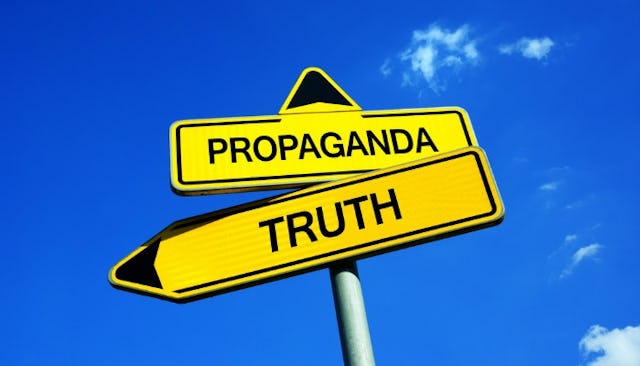For The Love Of God, Stop Falling For Fake News

When I was little, every day after dinner, my family sat down and watched the evening news together. The memories of my dad asking me to pull off his work boots mixes together in my mind with the leather smell of his favorite green chair in one big comforting heap. Tom Brokaw or Dan Rather would stare back at us from the screen and tell us about the world in their calm, soothing voices. There was scary stuff and happy stuff and bizarre stuff happening out there.
But somehow it didn’t seem as scary because we all agreed that the stuff was true. News facts were part of our collective consciousness. Back then, people trusted the news because we knew there were codes of ethics and unbiased reporting and rules to the game. Today, we may not be receiving our information in the same way that we used to, but these rules still exist. Our newspapers and the reputable online resources follow these rules to bring us the facts about our world. And despite what has been recently thrown about by members of our new government, facts are important.
Facts are good.
Facts come from science and evidence and can be followed up by more facts to prove that they are, indeed, facts.
Facts about what has been said, or done, can be verified by other people and by recording devices and documents.
Facts make the world go round and keep us safe from the crazies who would like to make us believe ridiculous lies about our fellow man.
Facts can even keep a gunman from entering a pizzeria to investigate a convoluted conspiracy theory — and then firing his weapon — all because he thought that he was interrupting a supposed pedophilia ring run by Hillary Clinton. WTF.
But in our age of the internet, facts become lost in a wide array of these conspiracy theories, misleading headlines, and outright lies. And just like wildfire, the lies tend to spread fast and furious and then no one can even remember what is true anymore.
Here are some recent examples of false headlines that millions of people clicked on:
WikiLeaks Confirms Hillary Clinton Sold Weapons to ISIS
Obama Signs Executive Order Banning the National Anthem at All Sporting Events Nationwide
Pope Francis Shocks World, Endorses Donald Trump for President
These stories are toxic waste dumps where the authors are receiving thousands and thousands of ad dollars each month just for your clicks. Paul Horner, a well-known fake news story writer, recently stated that he earns 10,000 dollars per month from AdSense by making up the most ridiculous headlines he can come up with. He also said, and I’m going to put this in quotes, “Honestly, people are definitely dumber. They just keep passing stuff around. Nobody fact-checks anything anymore — I mean, that’s how Trump got elected.”
Ouch.
Writers like Paul Horner write these clickbait headlines so that we take the bait and spread the lies because then they get the money. It turns out that facts don’t ever sell as hot as a super fake but also entertaining read. It’s sort an evil genius plot, and I can’t stop picturing all of these fake news writers cackling wickedly over their computers with their little yellow minions running around.
The fake news system works because the angry little person in each of one us wants to believe that some of these stories about our political rivals are true. Wouldn’t that be so delicious if so-and-so really did this horrible thing because then we were right all along. They feed into our desire to be right. Or left. Whatever. And it also works because it turns out that we, as humans, are really terrible at determining whether or not something is real or fake without digging just a bit deeper.
This quote from the New York Times sums up the larger problem with fake news, “Fake news, and the proliferation of raw opinion that passes for news, is creating confusion, punching holes in what is true, causing a kind of fun-house effect that leaves the reader doubting everything, including real news.”
Here is an article covering some helpful tips for determining whether a story is real or not. They are simple tips, such as look at the url (abcnews.com is real, but abcnews.com.co is not). You can also look for lack of quotes, lots of exclamation points, and headlines that are exaggerated or overblown.
People of the internet, I think we all need to be smarter. We need to be smarter for ourselves and for our children. It doesn’t take much to verify a story. But the safety of world just might depend on us trying.